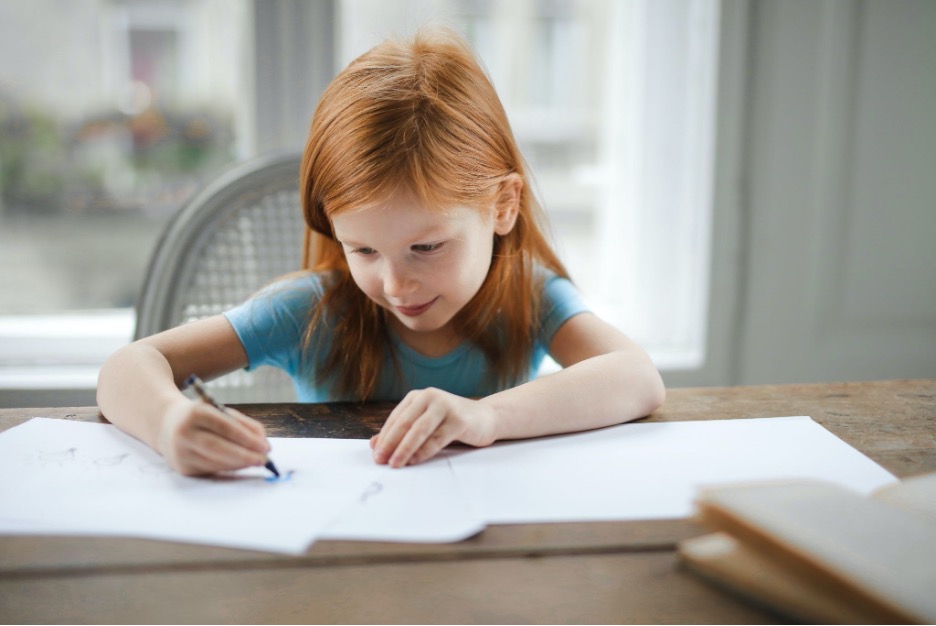It’s easy in today’s world for children to become distracted from their studies. They are inundated daily by activities, friends, games and screens. So, it’s never too early to begin carving out structured study habits for your little ones.
The best way for elementary school students to study is by beginning with a solid routine, sitting in an ideal study space, getting their wiggles out before study time, taking good notes and using tried-and-true methods such as flashcards.
Each child is a unique individual with their own needs. But carving out a study routine that works best for them — and sticking to it — can greatly help them to become a better student.
Create a daily routine
Teaching kids to follow a structured daily routine with study time is fundamental to developing good habits.
For one thing, children with a structured routine tend to feel more secure and less stressed. Studies show that children who stick to a routine also sleep better.
If you have other kids and need to juggle, make a schedule. As long as study time stays the same on a daily or weekly basis, your child will be able to fall easily into their new routine.
Another great thing about a daily routine is that it also helps to balance the fun things and the less fun, yet important tasks. Kids will know if they do the important thing, the fun thing will follow. Achieving that sense of balance at a young age helps to develop mentally healthy adults.
And, lastly, having a structured study routine helps children to better comprehend your expectations of them. Then, they can start doing things on their own, giving them a confidence boost and a sense of overall satisfaction.
Create or find a quiet space, free of distractions
If you haven’t already done so, it’s important to dedicate a space in your home for your child to study — a place that has all the proper supplies that they need and a space that works for them.
If your child needs supervision or if they need a little noise around them to study, create a nook for them in a public area of your home.
If they need to be alone, you can dedicate a space within a home office or another closed-door area. It all depends on your child.
Be sure the space is comfortable, but not enough for your child to fall asleep. And keep it organized with the proper supplies at hand. Their study space should also be well-lit and clean, without too much distracting clutter.
Exercise or play outside first, then study
If you are building a routine for your child, many experts suggest that children get at least 10 minutes of vigorous exercise before studying. So, if your child is already involved in sports, study time should come after, as long as that works for your family.
According to experts, an increase in heart rate can help improve academic performance and concentration in children. And, bodies relax when recovering a normal heart rate. Think of it this way: they’ll sit still longer if they have an opportunity to get the wiggles out before study time.
Download note-taking worksheets
Note-taking is a discipline that needs to be developed, and some children and parents don’t know where to start. There is no one right way to take notes, so it’s important to find what works best for your child.
Many different note-taking worksheets are available for free download on scholastic websites and Pinterest. Each of the hundreds of available worksheets covers a particular area: whether it’s taking notes from a video, taking notes to learn a foreign language or organizing notes while reading a new subject.
Effective note-taking worksheets have dedicated sections that help your child to keep their thoughts organized. Good note-taking habits can begin early, and as your child grows, they can adjust their note-taking practice to whatever works best for them.
Use flashcards
Flashcards are an oldie but a goodie for creating effective study habits. And, if you can’t find exactly what you need, flashcards are easy to custom make for any subject whether on paper or a flashcard app.
Flashcards are specifically designed to help students recall and retain information. This is because the repetition of flashcards helps improve memory. An age-old method, using flashcards allows children to interact with information in a different way than simply reading and taking notes.
Developing good study habits doesn’t just create great students — they can help your child to become a more organized, more structured adult.

